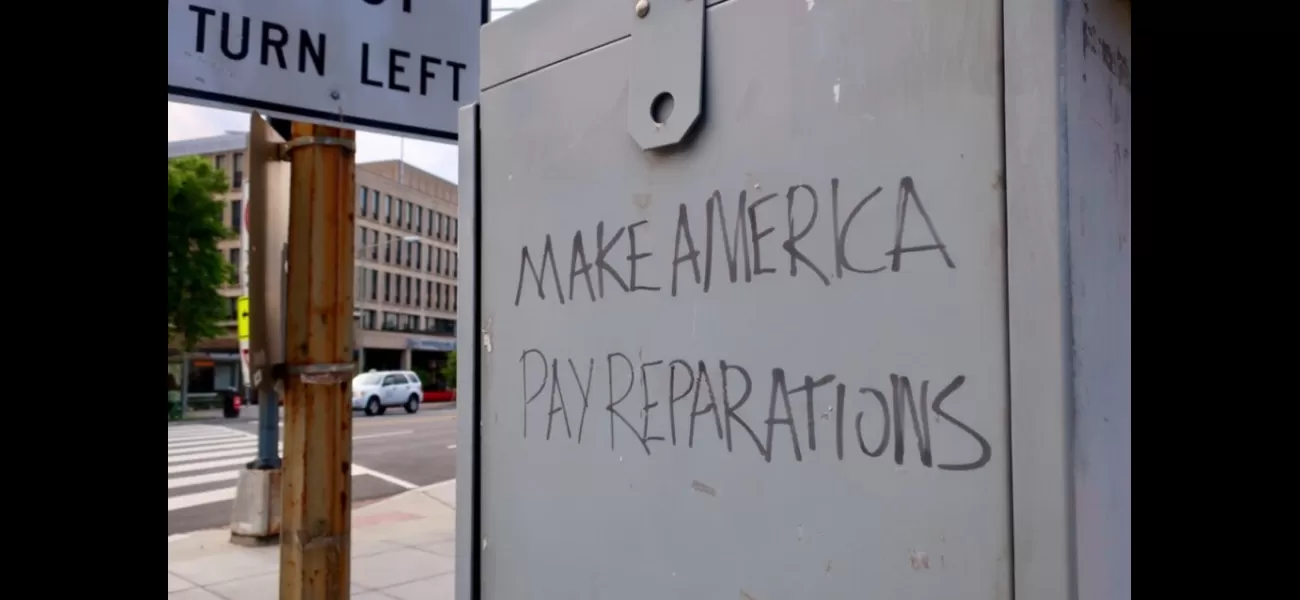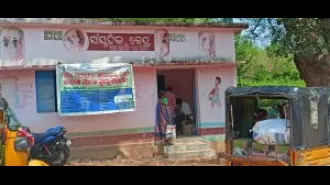Californian Black families demand land rights and reparations.
Eminent domain has sparked calls for reparations for Black individuals who have been wronged by their governments.
July 22nd 2024.

In Coloma, California, a small town with a population of about 300 people, there is a fight happening. Black families are standing up to demand restitution for the land that their ancestors were denied by the State of California. This land was taken to create a state park, and it holds a significant historical significance in the Gold Rush of the 19th century.
The Gold Rush attracted many people, including free and enslaved Black Americans, who saw California as a land of opportunity to strike it rich. However, about 100 years after the Gold Rush, the state of California took lands from its inhabitants. This was most likely done through eminent domain law for the creation of the Marshall Gold Discovery State Historic Park, which officially opened in 1942. The California State Park Department is aware of this and even lists information about the property that was once owned by Black families on-site.
Two sets of descendants of Nelson Bell, a formerly enslaved Black man from Virginia, believe that his land was stolen through the legal system's manipulations. According to a document from the El Dorado History Museum, a judge ruled that because Bell had no heirs living in California at the time of his death in 1869, his estate would go up for auction. This meant that anyone who wanted the property could bid on and purchase it.
Elmer Fonza, a retired brewery worker and the third-great grandson of Bell, testified at the final meeting of California's state reparations task force. He expressed his belief that his family should still have ownership of the land, stating, "We rightfully believe that we have been denied the generational wealth that our family may have been entitled to if given our rightful inheritance - the land once owned by Nelson Bell."
Another family that claims to be descended from Bell, the Burgess family, also spoke out about their connection to the land. They are not related to Fonza, but they believe that if the land cannot be returned to its original owners, they should be compensated. Jonathan Burgess, a Sacramento resident and co-owner of a barbeque catering business, stated, "We have to bring forth the truth, because that's reconciliation. And then once we bring forth the truth, which I've been doing in speaking the whole time, we've got to make it right."
However, there is a discrepancy between the two family kinships, highlighting the challenges that Black families face in proving their lineage. This could potentially be a requirement for receiving reparations, which can be difficult for Black families due to the practice of family separation during enslavement and the erasure of their records.
Currently, California lawmakers are considering reparations proposals in the California State Legislature. One bill would establish the California American Freedmen Affairs Agency, which would assist Black residents in researching their family histories, often fragmented due to past injustices. Another proposal would entitle Black Californians who had their land taken by the government using racially discriminatory methods to compensation or the return of the property.
This issue is not unique to Coloma, as the practice of eminent domain has been at the center of recent pushes for reparations for Black people. In an interview with The New York Times in June 2023, Michael Jones, a resident of Huntsville, Alabama, spoke about his family's fight for reparations. He stated, "For our family and others, it's not just about the taking of the land; it's about the taking of our ability to build wealth."
It is clear that the fight for reparations is not just about receiving financial compensation, but also about acknowledging and rectifying the wrongs done to Black families throughout history. This includes the erasure of their ability to build and create wealth, as well as the separation of families and the loss of their land. But with the efforts of these families and lawmakers, there is hope for a more just and fair future.
The Gold Rush attracted many people, including free and enslaved Black Americans, who saw California as a land of opportunity to strike it rich. However, about 100 years after the Gold Rush, the state of California took lands from its inhabitants. This was most likely done through eminent domain law for the creation of the Marshall Gold Discovery State Historic Park, which officially opened in 1942. The California State Park Department is aware of this and even lists information about the property that was once owned by Black families on-site.
Two sets of descendants of Nelson Bell, a formerly enslaved Black man from Virginia, believe that his land was stolen through the legal system's manipulations. According to a document from the El Dorado History Museum, a judge ruled that because Bell had no heirs living in California at the time of his death in 1869, his estate would go up for auction. This meant that anyone who wanted the property could bid on and purchase it.
Elmer Fonza, a retired brewery worker and the third-great grandson of Bell, testified at the final meeting of California's state reparations task force. He expressed his belief that his family should still have ownership of the land, stating, "We rightfully believe that we have been denied the generational wealth that our family may have been entitled to if given our rightful inheritance - the land once owned by Nelson Bell."
Another family that claims to be descended from Bell, the Burgess family, also spoke out about their connection to the land. They are not related to Fonza, but they believe that if the land cannot be returned to its original owners, they should be compensated. Jonathan Burgess, a Sacramento resident and co-owner of a barbeque catering business, stated, "We have to bring forth the truth, because that's reconciliation. And then once we bring forth the truth, which I've been doing in speaking the whole time, we've got to make it right."
However, there is a discrepancy between the two family kinships, highlighting the challenges that Black families face in proving their lineage. This could potentially be a requirement for receiving reparations, which can be difficult for Black families due to the practice of family separation during enslavement and the erasure of their records.
Currently, California lawmakers are considering reparations proposals in the California State Legislature. One bill would establish the California American Freedmen Affairs Agency, which would assist Black residents in researching their family histories, often fragmented due to past injustices. Another proposal would entitle Black Californians who had their land taken by the government using racially discriminatory methods to compensation or the return of the property.
This issue is not unique to Coloma, as the practice of eminent domain has been at the center of recent pushes for reparations for Black people. In an interview with The New York Times in June 2023, Michael Jones, a resident of Huntsville, Alabama, spoke about his family's fight for reparations. He stated, "For our family and others, it's not just about the taking of the land; it's about the taking of our ability to build wealth."
It is clear that the fight for reparations is not just about receiving financial compensation, but also about acknowledging and rectifying the wrongs done to Black families throughout history. This includes the erasure of their ability to build and create wealth, as well as the separation of families and the loss of their land. But with the efforts of these families and lawmakers, there is hope for a more just and fair future.
[This article has been trending online recently and has been generated with AI. Your feed is customized.]
[Generative AI is experimental.]
0
0
Submit Comment





